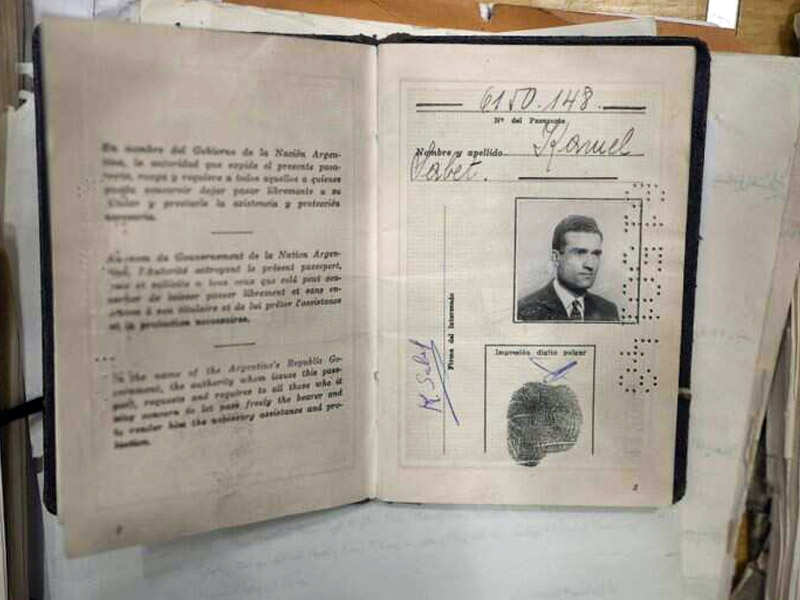Eli Cohen Archive: A Window Into the Secret World of Israel’s Great Spy
The release of the Eli Cohen archive marks a groundbreaking moment in the history of Israeli intelligence. Eli Cohen, the legendary Mossad agent who infiltrated the highest echelons of the Syrian government in the 1960s, has long been considered a national hero. Now, thanks to newly revealed documents, photographs, and court transcripts, the world has an unprecedented look into the life, missions, and ultimate fate of this courageous spy.
This comprehensive collection, brought back to Israel through a remarkable operation by the Mossad, includes not only operational files and surveillance missions but also deeply personal material, such as court judgments, execution orders, and letters from Cohen’s wife, Nadia, who fought tirelessly for his release.
The Spy Who Lived Among His Enemies
Eli Cohen’s story is one of extraordinary bravery. Born in Egypt to a Jewish-Syrian family, he was recruited by Israeli intelligence and trained for deep-cover operations. Under the alias Kamel Amin Thaabet, he lived in Damascus and became embedded in the Syrian elite. He gained the trust of military commanders, ministers, and even the president, while secretly transmitting intelligence back to Israel.
Cohen’s reports provided critical details about Syrian fortifications and military installations, particularly on the Golan Heights. His intelligence was vital in shaping Israel’s strategies and ultimately contributed to the successful outcome of the Six-Day War in 1967.
What the Archive Reveals
The Eli Cohen archive includes hundreds of previously unseen photographs, intelligence briefings, court records, and personal files. Among the most startling revelations:
- Photographs with Syrian officials: Dozens of images show Cohen socializing with top-ranking military and political figures, confirming the extent of his infiltration.
- Mossad mission orders: Classified documents reveal specific instructions from Mossad, such as surveillance of sensitive targets and intelligence-gathering missions in Quneitra.
- Court execution documents: The official verdict and death sentence are included, shedding light on how Syria viewed his actions and their judicial process.
- Religious visitation approval: A rare document approving Rabbi Nissim Indibo to offer Eli Cohen spiritual counsel before his execution, reflecting the cultural sensitivity and final moments of the agent’s life.
Nadia Cohen’s Fight: The Forgotten Chapter
One of the most emotional sections of the archive is a thick orange file marked Nadia Cohen. It chronicles her relentless campaign to save her husband, with heartfelt letters addressed to world leaders, humanitarian organizations, and even the President of Syria. Despite international efforts and global appeals, her pleas were in vain.
The archive also includes internal Syrian intelligence notes tracking her activities—a chilling reminder of how closely they monitored every move surrounding the case.
Voices from Today: Reflections on the Legacy
Prime Minister Benjamin Netanyahu praised the archival release as a tool for educating future generations. He stated, “Eli Cohen was a legend. His heroism and his activity contributed to our historic victory in the Six Day War.”
Mossad Director David Barnea added that returning the archive was “an achievement of the highest moral order,” and emphasized their continued commitment to locating Cohen’s burial site in Damascus, vowing, “We will continue to act to return all our missing and fallen.”
The Ongoing Mission to Bring Him Home
Despite decades passing since Cohen’s execution in 1965, Mossad’s mission is far from over. The intelligence agency continues to pursue leads to discover the exact location of Cohen’s remains. This moral and national objective underscores Israel’s commitment to its fallen agents and the principle of never leaving anyone behind.
Historical Significance of the Archive
The value of the Eli Cohen archive is immeasurable. It doesn’t just document espionage—it captures the soul of a man who risked everything for his country. His reports influenced Israeli military tactics, particularly in the Golan Heights, changing the region’s strategic landscape forever.
Furthermore, the archive has been carefully curated to serve as an educational tool. Schools, military academies, and museums are expected to integrate this content into their curricula, ensuring that future generations understand the magnitude of Cohen’s sacrifice.

FAQs About the Eli Cohen Archive
1. What is the Eli Cohen archive?
It’s a comprehensive collection of documents, photos, and official records detailing the espionage activities, trial, and legacy of Israeli spy Eli Cohen.
2. Who brought the archive to Israel?
The Mossad orchestrated a special operation to recover and bring the archive from Syria to Israel.
3. What type of documents are in the archive?
It includes mission briefs, photographs, legal documents, personal files, and intelligence records related to Eli Cohen’s covert activities.
4. Why is the archive significant now?
It sheds new light on Eli Cohen’s missions, reaffirms his heroism, and supports ongoing efforts to find and repatriate his remains.
5. Where is the archive kept?
It is housed in Israel and will be made accessible for educational and historical research.
6. What did Nadia Cohen do to save her husband?
She launched a global letter-writing campaign to political leaders and human rights organizations, imploring them to intervene.
The Eli Cohen archive is not just a collection of records—it’s a sacred testament to one man’s bravery, a nation’s gratitude, and a family’s enduring love. Eli Cohen’s legacy continues to inspire, reminding the world that even in the shadowy world of espionage, humanity and heroism shine through.


